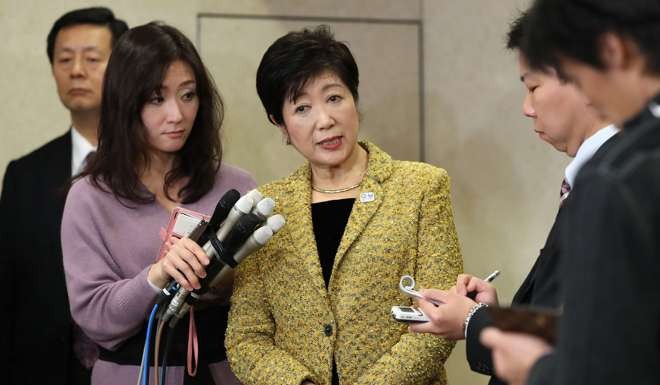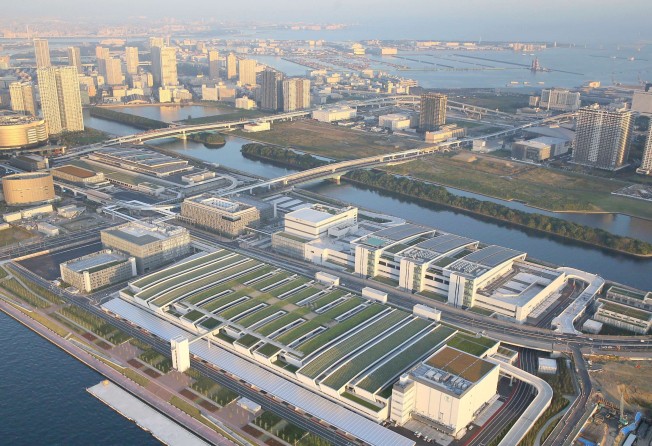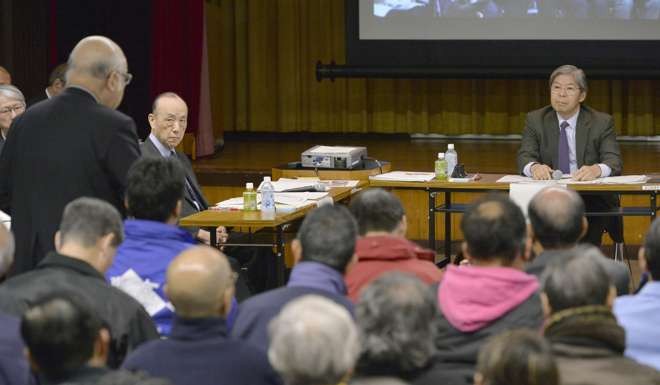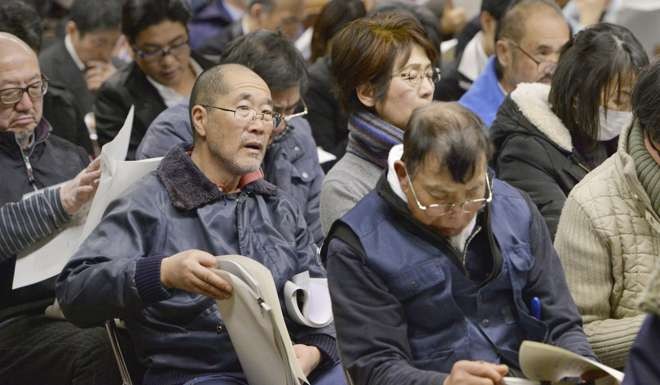
Toxic chemicals found at Tokyo’s new fish market site
Arsenic and cyanide found in groundwater samples at the location, as well as 79 times the permitted level of benzene, which causes cancer

An amount of benzene 79 times the government-set safety limit was detected among other toxic chemicals in groundwater taken from the site in Tokyo’s Toyosu area where the famous Tsukiji fish market is to be relocated, officials of the Tokyo metropolitan government said on Saturday.
With the shocking result prompting questions over the veracity of data from previous groundwater tests, which had rarely found any problematic levels of toxins, the metropolitan government’s panel of experts said it will re-examine the groundwater there and release the result of the probe in March.
The new finding could delay Governor Yuriko Koike’s decision on whether to allow the planned market relocation to proceed. Koike had already postponed the relocation originally scheduled for last November to address safety concerns over the new site.

“I am surprised to know that detected levels came in far higher than expected,” Koike told reporters.
She said separately that the metropolitan government “will have experts discuss” how to deal with the soil contamination.
This is the second time that toxic substances contained in groundwater samples from the relocation site have been found to exceed environmental safety limits.
Benzene, which also results from the production of gas, is known to cause cancer. The area used to be a gas production plant.
The metropolitan government said toxins were detected from groundwater at 72 out of 201 monitoring points. At one spot, benzene 79 times the allowable limit was detected, while arsenic at 3.8 times the government-set environmental limit, and even cyanide, were also detected.
Before the latest survey, eight similar surveys had been conducted since November 2014, when the Tokyo government claimed it had finished taking steps to deal with soil contamination caused by the previous gas production at the site.
The first seven surveys cleared the environmental standards. But in the eighth test, the results of which were released last September, two toxic chemicals – benzene and arsenic – were detected in groundwater samples at levels slightly exceeding the allowable limits.

At a news conference on Saturday, panel chairman Tatemasa Hirata said a surge in the levels of these chemicals in the latest survey is unusual, saying, “There is a need to look into whether this trend will continue.”
With the fresh finding, a conclusive report the panel was scheduled to compile in April will be “slightly delayed”, Hirata said.
The detection of sharply higher levels of benzene and other substances in the groundwater at the Toyosu site has angered and shocked businesses at the Tsukiji market, which have been left in a limbo as the metropolitan government seeks to ensure the safety of the replacement site.
“I find [myself] with a renewed sense of surprise at how things have turned out,” said Hiroyasu Ito, chairman of the Tsukiji Market Association. Ito has been asking Koike to decide quickly whether to relocate the aging market, which opened in 1935, to the new site.
Yasuhiro Yamazaki, president of a fish processing intermediate wholesaler business, said the latest finding will further raise public doubt about the safety of the relocation site. “It is unavoidable if [the metropolitan government] is suspected of altering [earlier] data,” Yamazaki said.
In the past few years, concerns about soil contamination in the new fish market site have resulted in groundwater monitoring.

But Koike, upon becoming Tokyo mayor last August, decided to postpone the planned November 2016 relocation of the wholesale market, which also deals in fruit and vegetables, amid concerns about soil and air pollution, as well as mounting costs linked to the project.
The planned relocation faced a further setback when Koike disclosed in September that not enough fresh soil had been layer beneath the main buildings of the new wholesale market.
The governor said in November that the opening date for the new market will fall some time from the end of 2017 to spring next year, or later, after the expert panel completes between April and May their assessment of the data released.